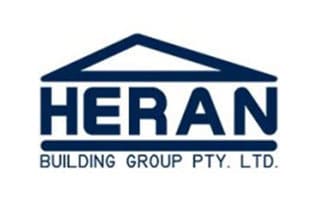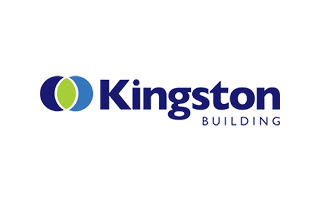




























As Queensland’s most trusted town planning and surveying experts, we provide a range of services to assist with the development process. From preliminary advice to providing town planning reports and assessment to accompany development applications and full cadastral surveying and drafting services, not just in Brisbane, however throughout Queensland.
These services also cater towards assisting with Development Applications in the form of:
Town Planning
Surveying
We deliver accurate survey interpretation and presentation of spatial data for all aspects of the physical environment. Our registered surveyors have advanced skills that include:
bplanned & surveyed are registered as consultants with cadastral endorsement from the Surveyors Board Queensland.
This multi-disciplinary approach together with extensive experience results in us being able to assist you with your development proposal.





















Our real-life project and development experience marries with the diverse and highly-capable experience of our Brisbane team, who are geared to minimise your project risks.
Our Brisbane team is committed to achieving the best outcomes for our clients which ultimately save time and money
Town planners play a crucial role in shaping the physical, social, and economic development of the city. Their primary responsibilities include:
Urban Planning: They are involved in creating and implementing urban plans and strategies to manage the growth and development of the city. This includes developing land use plans, zoning regulations, and policies to guide how land and resources are used.
Development Assessment: They review development proposals, such as building permits, rezoning requests, and subdivision applications, to ensure they comply with local planning regulations and policies. They assess the potential impact of developments on the environment, infrastructure, and community.
Community Engagement: They engage with the community to gather input and feedback on development projects and planning initiatives. This involves conducting public consultations, meetings, and workshops to ensure that the public’s concerns and interests are considered in the planning process.
Environmental Sustainability: Planners work to promote sustainable development practices, including preserving green spaces, conserving natural resources, and encouraging energy-efficient building design.
Infrastructure Planning: They collaborate with other government agencies and departments to plan for infrastructure improvements, such as roads, public transportation, parks, and utilities, to support the city’s growth.
The terms “town planner” and “urban planner” are often used interchangeably, though there can be differences in their roles and responsibilities. In general, both town planners and urban planners work in the field of urban and regional planning, but there may be subtle distinctions:
However, it’s important to note that these distinctions are not always rigid, and the roles of town planners and urban planners can overlap.
In some places, the terms may be used interchangeably, and the specific duties and responsibilities of these professionals can vary widely based on local regulations and the needs of the community.
Choosing a good surveyor is essential when you need accurate and reliable land surveying services. Whether you require a property boundary survey, topographic survey, construction survey, or any other type of survey, here are some steps to help you select a competent and reputable company:
Determine Your Survey Needs: Identify the specific type of survey you need. Different companies may specialize in various areas, such as land boundaries, construction, or topography.
Verify Licensure and Credentials: Ensure that they are licensed and qualified to perform the type of survey you require. Check their credentials, certifications, and affiliations with professional organizations relevant to surveying.
Check Experience and Expertise: Assess the experience in your area and the type of surveying work you need. An experienced company is more likely to provide accurate results and navigate any potential challenges effectively.
Ask for References: Request references and contact previous clients to inquire about their experiences. This can provide valuable insights into the professionalism, reliability, and quality of the work.
Verify Insurance Coverage: Ensure that the surveyor carries professional liability insurance. This insurance can protect you in case errors or omissions occur during the surveying process.
Request a Written Estimate: Obtain detailed cost estimates from multiple companies for your project. Compare these estimates to understand the pricing structure and ensure it aligns with your budget.
Discuss the Survey Process: Have a conversation about their process, including the timeline, data collection methods, and communication throughout the project. Ensure you are comfortable with their approach.
Obtain Multiple Quotes: Don’t settle for the first company you contact. Collect quotes from several surveyors to compare their services and pricing before making a decision.
Review Contracts and Terms: Carefully review the contract terms, including payment schedules, project timelines, and any guarantees or warranties provided. Seek clarification on any aspects that are unclear.
Land surveyors play a critical role in providing accurate and legally binding information about property boundaries, land characteristics, and other important factors. Here are some scenarios where hiring a surveyor is typically worth it:
Property Boundary Disputes: If you’re involved in a boundary dispute with neighbours or have concerns about the accuracy of your property lines, they can provide a precise survey to determine the actual boundaries. This can help resolve disputes and avoid legal issues.
Property Purchase: When buying a property, having a land survey done can ensure that the land you’re acquiring matches the legal description provided in the deed. This helps prevent future boundary disputes and potential encroachments.
Construction Projects: They are essential for construction projects to accurately establish property boundaries, elevation levels, and other site-specific information. This ensures that construction is done within the legal boundaries and complies with local regulations.
Subdivision or Land Division: If you plan to divide a larger property into smaller parcels or lots, a surveyor will help you create legally recognized subdivisions, ensuring that each new lot meets zoning and land use requirements.
Flood Risk Assessment: They can assess the flood risk of a property and determine whether it falls within a designated flood zone. This information is important for insurance purposes and construction decisions.
Property Development: They are crucial for planning and designing property developments, including residential, commercial, or industrial projects. They help lay out infrastructure, roads, utilities, and other essential elements.
Land Use Planning: Local governments and planning authorities often require surveys as part of the approval process for land development projects and zoning changes.
Easements and Right-of-Way: They can identify and document easements, rights-of-way, or access points that may affect your property rights and land use.
Since our first client in 2012, we have wanted to create a supportive environment not just in Brisbane, however throughout Queensland, that our clients would want to come back to. So we built our team with people who are passionate about their industry and we made it our mission to continually educate them in how to better understand client needs.